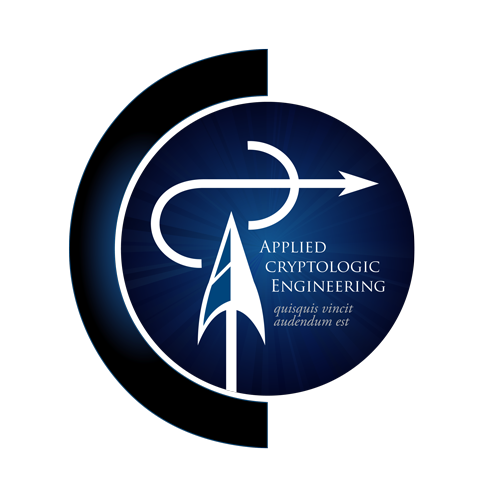Courses - Applied Cryptologic Engineering (ACE)
Courses
Network Security
3690
This course covers the concepts and technologies used to achieve confidentiality, integrity, and authenticity for information processed across networks. Topics include: fundamentals of TCP/IP-based networking, core network security principles, traffic filtering types and methodology, packet-level traffic analysis, employment of cryptography, tunneling/encapsulation, Public Key Infrastructure (PKI), remote authentication protocols, and virtual private networks based upon the IPSec, L2TP, and SSL protocols.
Advocating Emerging Technologies
4926
In a world of ever-changing technological developments, leaders are faced with the challenge of communicating highly specialized knowledge, technological needs, and impacts to a wide audience – both up and down the decision-making ladder. This course offers cyberspace and other technology professionals strategic skills for communicating specialized technical concepts and subject matter expertise. Students will be challenged to transform subject matter expertise in a technical arena into communication that is immediately accessible to a non-technical audience. This course will cover how to engage effectively with a skeptical audience to communicate technological content, need, and impact succinctly, using written, oral, visual, electronic and nonverbal (WOVEN) rhetorical skills. The learning outcomes of this course serve as a bridge for innovators to commands and leadership, enabling force technological readiness and agility in adoption through effective communication of specialized capabilities.
Cryptographic Protocol Design and Attacks
4615
Cryptographic protocols (such as key-exchange and mutual-authentication protocols) are essential to the security of all distributed computer networks. Such protocols are often simple, but they also often fall victim to various attacks, including structural attacks. This course considers the ‘protocol analysis problem': finding attacks against a protocol (if they exist) or proving their absence (if they do not). We will examine protocol design and protocol-analysis techniques, and compare their strengths and weaknesses. Advanced topics include (as time permits) protocol-design heuristics, trust-management and higher-level protocol goals, interactions between protocols, computational soundness, and decidability results.
Advanced Topics in Computer Science I
4921
(Variable hours 2-4 to 4-1.) Designed to support advanced group study of subject matter of special interest, dependent upon faculty availability. Topics will be drawn from areas not covered by other advanced courses, or be focused treatments of subject of limited scope. This course may be lecture or lab oriented, with prerequisites determined by the instructor. Students may repeat this course for credit with a different topic.

